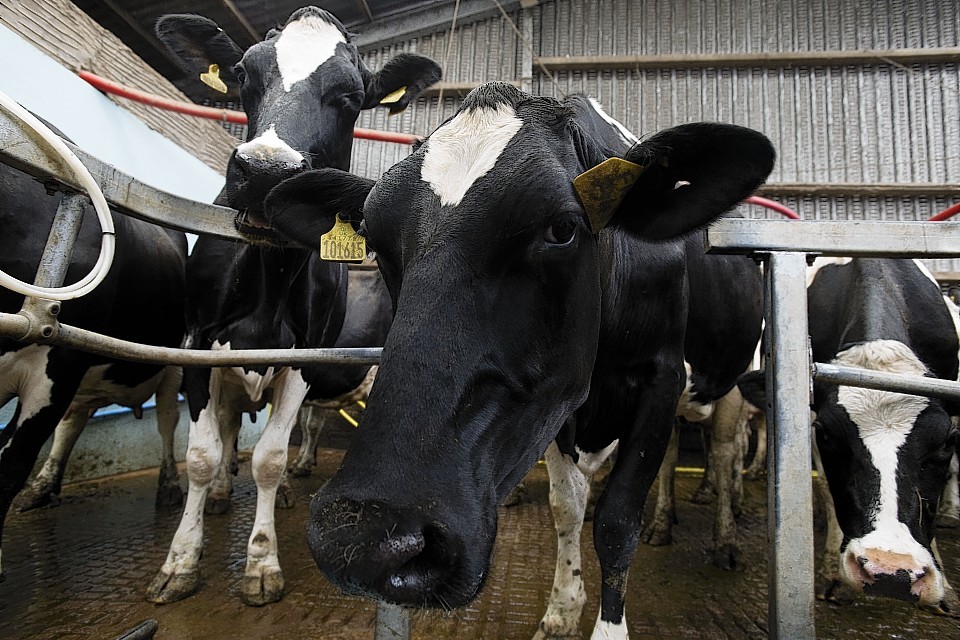Shoppers have been urged to get behind dairy farmers amid a global price crash which could push many producers out of business.
Industry leaders said yesterday that dairy farmers were in a “dire situation” – with most getting paid less than the cost of production for their milk.
Processors have blamed an oversupply of milk and falling demand for dairy products across the world for falling prices.
And Glasgow-based dairy firm First Milk has had to withhold nearly £10million in payments to more than 1,000 farmers as a result of cash flow problems following the crash.
The firm, which is behind brands such as Isle of Arran cheddar, Scottish Pride and Mull of Kintyre cheddar, is 100% owned by UK dairy farmers.
As well as delaying payments, it has called on members to pay more into the co-operative to keep it afloat.
Lobby group Farmers For Action warned the move could be the “death knell” for many dairy farming businesses.
Its chairman, Welsh dairy farmer David Handley, said the current situation could be enough to make him quit the industry.
Mr Handley has long fought for a better deal for farmers, leading the “SOS Dairy” protests which followed the milk price crisis in 2012.
The protests, which led to thousands of farmers blockading milk processing plants and supermarket depots, followed a drop in farmers’ milk prices as a result of another global dairy price crash.
Meanwhile, the chief of the National Farmers’ Union south of the border, Meurig Raymond, told a conference in Glasgow yesterday that farmers were receiving the lowest price for their milk since 2007.
Some were only getting paid around 20p per litre for their milk, with milk becoming cheaper than mineral water in some supermarkets, he said.
Members of the public have been urged to sign an e-petition on the UK Government’s website, which calls for farmers to be paid a minimum price for their milk.
The petition, which closes on March 30, says: “Many farmers are being driven into crisis as retailers slash the milk price further.
“This is to petition the government to set a milk price payable to the farmer to protect their business, livelihood and the future of the industry.”
